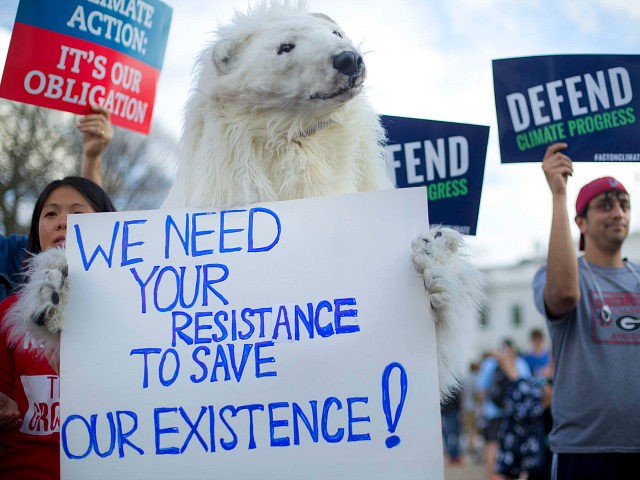The Guardian newspaper announced it is changing it style rules for staff that report on the environment in an article with the headline: “’It’s a crisis, not a change:’ the six Guardian language changes on climate matters.”
The Guardian listed in the article the new words and phrases it will now employ in its reporting and also images (think polar bear on a tiny iceberg or fires in the Amazon) and explained its reasoning:
In addition to providing updated guidelines on which images our editors should use to illustrate the climate emergency, we have updated our style guide to introduce terms that more accurately describe the environmental crises facing the world. Our editor-in-chief, Katharine Viner, said: “We want to ensure that we are being scientifically precise, while also communicating clearly with readers on this very important issue.” These are the guidelines provided to our journalists and editors to be used in the production of all environment coverage across the Guardian’s website and paper:
“The urgency of climate crisis needed robust new language to describe it,” the Guardian reported.
• Climate emergency” or “climate crisis” will be used instead of “climate change.”
Climate change is no longer considered to accurately reflect the seriousness of the overall situation; use climate emergency or climate crisis instead to describe the broader impact of climate change. However, use climate breakdown or climate change or global heating when describing it specifically in a scientific or geophysical sense eg “Scientists say climate breakdown has led to an increase in the intensity of hurricanes.”
• “Climate science denier” or “climate denier” to be used instead of “climate sceptic.”
The OED (Oxford English Dictionary) defines a sceptic as “a seeker of the truth; an inquirer who has not yet arrived at definite conclusions”. Most “climate sceptics,” in the face of overwhelming scientific evidence, deny climate change is happening, or is caused by human activity, so ‘denier’ is more accurate.
• “Use “global heating” not “global warming.”
‘Global heating’ is more scientifically accurate. Greenhouse gases form an atmospheric blanket that stops the sun’s heat escaping back to space.”
• “Greenhouse gas emissions” is preferred to “carbon emissions” or “carbon dioxide emissions.” Although carbon emissions is not inaccurate, if we’re talking about all gases that warm the atmosphere, this term recognizes all of the climate-damaging gases, including methane, nitrogen oxides, CFCs etc.”
And the Guardian believes emotion-evoking animals in its reporting will serve a purpose.
• Use “wildlife,” not “biodiversity.”
“We felt that ‘wildlife’ is a much more accessible word and is fair to use in many stories, and is a it less clinical when talking about all the creatures with whom we share the planet.
• Use “fish populations” instead of “fish stocks.”
This change emphasizes that fish do not exist solely to be harvested by humans – they play a vital role in the natural health of the oceans.
“Today we pledge to give the climate crisis the attention it demands,” Viner said. “People need reminding that the climate crisis is no longer a future problem – we need to tackle it now, and every day matters.”
“Since we announced these changes, they have been reported widely, shared across social media channels, and even prompted some other media outlets to reconsider the terms they use in their own coverage,” the Guardian reported, adding that it is now incorporating CO2 levels to its weather coverage.
“In order to keep below 1.5C of warming, the aspiration of the world’s nations, we need to halve emissions by 2030 and reach zero by mid century,” the Guardian reported. It is also likely we will need to remove CO2 from the atmosphere, perhaps by the large-scale restoration of nature. It is a huge task, but we hope that tracking the daily rise of CO2 will help to maintain focus on it.”
Follow Penny Starr on Twitter

COMMENTS
Please let us know if you're having issues with commenting.